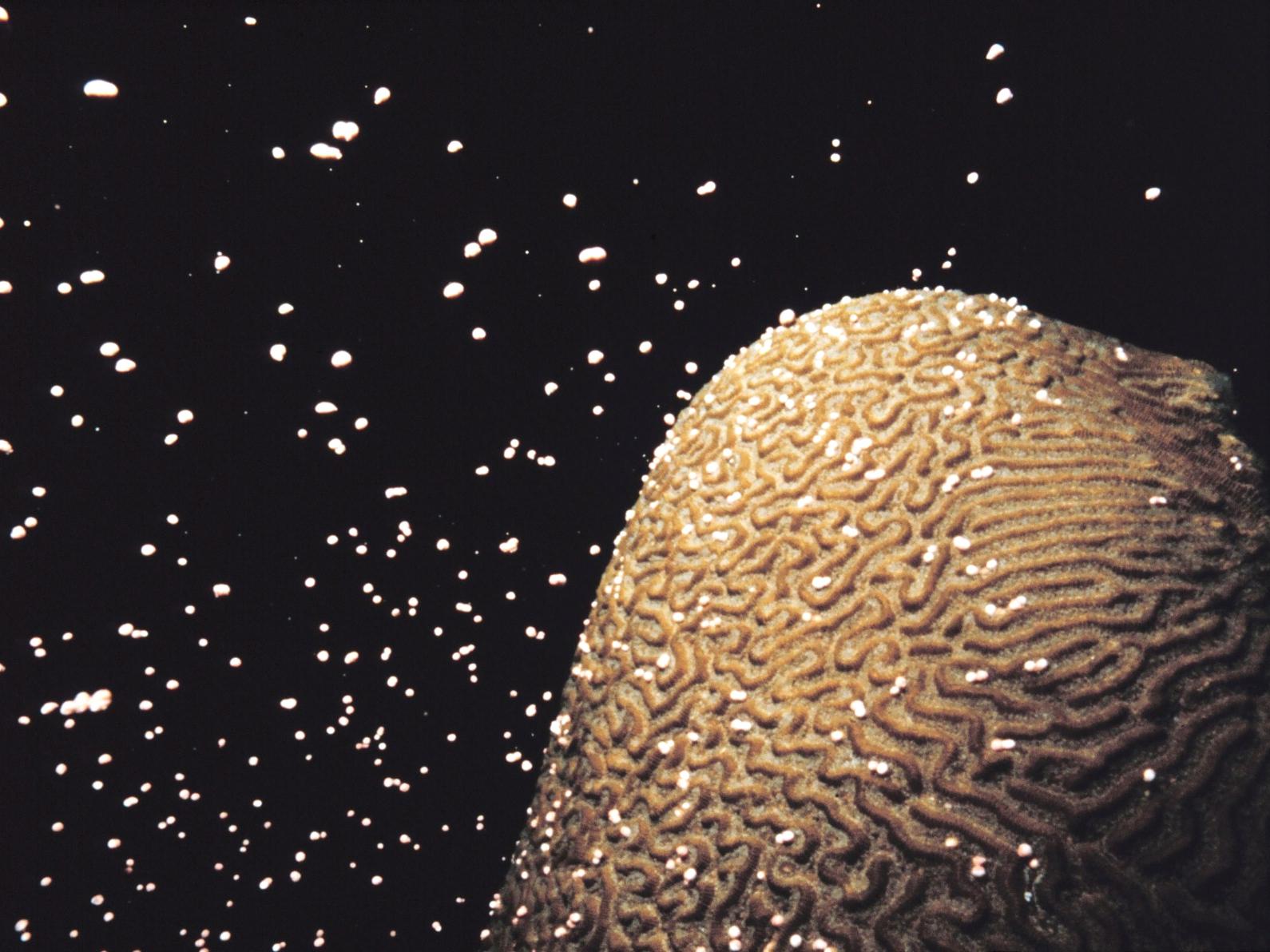Number of ‘coral babies’ emerging from Great Barrier Reef drops by 90% due to global warming
'We used to think that the Great Barrier Reef was too big to fail – until now'

Your support helps us to tell the story
From reproductive rights to climate change to Big Tech, The Independent is on the ground when the story is developing. Whether it's investigating the financials of Elon Musk's pro-Trump PAC or producing our latest documentary, 'The A Word', which shines a light on the American women fighting for reproductive rights, we know how important it is to parse out the facts from the messaging.
At such a critical moment in US history, we need reporters on the ground. Your donation allows us to keep sending journalists to speak to both sides of the story.
The Independent is trusted by Americans across the entire political spectrum. And unlike many other quality news outlets, we choose not to lock Americans out of our reporting and analysis with paywalls. We believe quality journalism should be available to everyone, paid for by those who can afford it.
Your support makes all the difference.Devastating heatwaves have caused the number of coral “babies” emerging from the Great Barrier Reef to drop by nearly 90 per cent, according to a new study.
Rising ocean temperatures resulting from climate change in the region have been linked with bleaching events and “the largest die-off of corals ever recorded”.
Scientists are concerned that with both adult coral and their larvae taking a massive hit, the reef is unlikely to survive a future of warming and extreme weather.
Following two devastating heatwaves that struck the reef over consecutive years, the scientists said the decline of larval coral was unsurprising.
“Dead corals don’t make babies,” said Professor Terry Hughes of the ARC Centre of Excellence for Coral Reef Studies at Australia's James Cook University, who led the study which was published in the journal Nature.
“The number of new corals settling on the Great Barrier Reef declined by 89 per cent following the unprecedented loss of adult corals from global warming in 2016 and 2017.”
Professor Hughes and his team surveyed the numbers of young and old coral along the reef after these extreme events.
Despite their rocky appearance, corals are animals that produce tiny larvae, which then float at the ocean surface before settling on the reef and developing to adults.
Some species of coral were harder hit by the heatwaves, with those that remained closer to their parent reef more likely to survive than those that dispersed further into the ocean.
One of the worst affected groups was the Acropora – which includes key varieties such as table and staghorn coral that provide habitats for thousands of other species.
Historically, if one section of reef was damaged it would be seeded by larvae travelling from other neighbouring corals, but the scientists are concerned this ability is being lost.
The Great Barrier Reef has so far experienced four mass bleaching events since 1998, when heat-stressed corals expel the algae that provide them with energy they need to survive.
As global temperatures creep up, scientists think the gap between these events is likely to shrink.
“It’s highly unlikely that we could escape a fifth or sixth event in the coming decade,” said co-author Professor Morgan Pratchett.
When the heatwave struck in 2016, headlines began to emerge declaring the natural wonder – which stretches across 1,400 miles of Queenland coastline – was officially dead.
While those warnings were somewhat premature, there is no doubt that the reef’s days may be numbered if greenhouse gas emissions continue unabated.
In its most recent climate assessment, the Intergovernmental Panel on Climate Change predicted that if global temperatures were allowed to rise by 2C, 99 per cent of the planet’s reefs would be wiped out.
“We used to think that the Great Barrier Reef was too big to fail – until now,” said Prof Pratchett.
Join our commenting forum
Join thought-provoking conversations, follow other Independent readers and see their replies
Comments